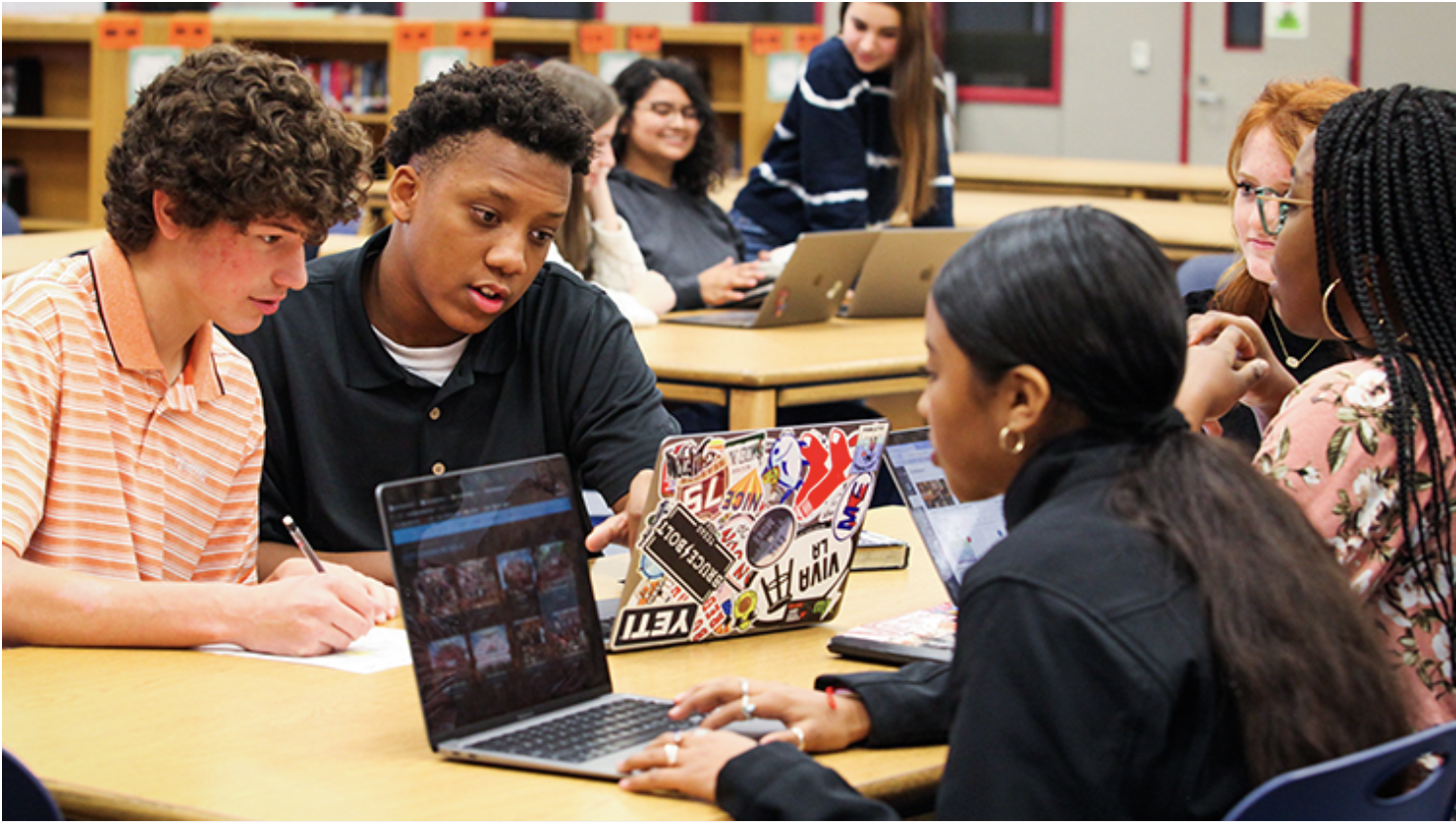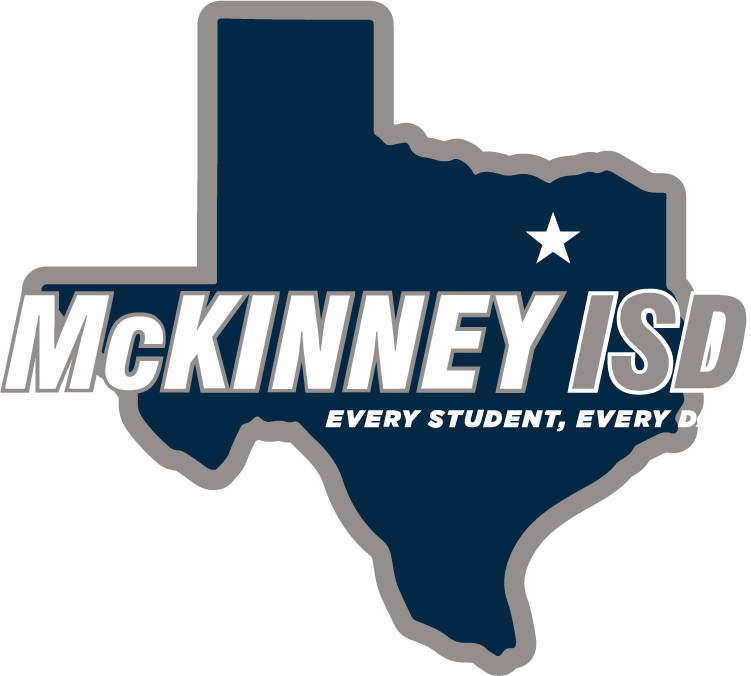Curriculum and Instruction

High school students working together.
English Language Arts & Reading
Mission Statement
To advance the literacy growth of MISD students through a Structured Literacy Model of the Reading and Writing Workshop that will engage students’ metacognitive skills in all content areas, so they are equipped to evaluate, problem solve, and communicate as readers and writers.
Description/Philosophy
English Language Arts instruction is designed so that students engage in activities that build on prior knowledge and strengthen their reading, writing, and oral language skills.
The key to success is that students will read and write on a daily basis. Included in this work are:
Read and understanding a wide variety of literary and informational texts;
Compose a variety of written texts;
Learn how to locate a range of relevant sources and evaluate, synthesize, and present ideas and information;
Listen and respond to the ideas of others while contributing their ideas in conversations and groups;
Learn how to use the oral and written conventions of the English language in speaking and writing.
In a Structured Literacy Model, teachers and students work through a cycle where teachers model a skill that students then practice with peers. Finally, students have an opportunity to show on their own that they have learned the skill.
The ultimate goal of an English Language Arts classroom in MISD is to teach the reader and the writer. We want students to leave our classrooms with a passion for and an understanding of how to communicate effectively through reading and writing.
Social Studies
Mission Statement
We will produce informed critical thinkers, socially responsible American citizens, and quality contributors in a global society through a rigorous and relevant social studies framework that provides engaging learning experiences for all students.
Description/Philosophy
In Pre Kindergarten through 12th grade, students build a foundation in social studies through eight strands:
History
Geography
Economics
Government
Citizenship
Culture
Science/technology/society
Social studies skills
The content, as appropriate for the grade level or course, serves three purposes:
Enables students to understand the importance of patriotism;
Function in a free enterprise society;
Appreciate the basic democratic values of our state and nation as referenced in the Texas Education Code.
These eight strands of the essential knowledge and skills for social studies are integrated for instructional purposes. As a result, students reach a greater depth of understanding of complex content material because integrated social studies content from the various disciplines and critical-thinking skills are taught together.
State and federal laws mandate a variety of celebrations and observances, including Celebrate Freedom, which includes appropriate instruction concerning the intent, meaning, and importance of the Declaration of Independence and the U.S. Constitution, including the Bill of Rights, in their historical contexts.
Links
Science
Mission Statement
Students of MISD will demonstrate scientific thinking through engaging inquiry-based investigations that allow them to develop and apply scientific reasoning, communicate as informed scientists, and discover the natural world through scientific investigation.
Description/Philosophy
Science is the use of evidence to communicate explanations of natural phenomena. In MISD, students are encouraged to engage in scientific inquiry using experimental, descriptive or comparative methods to solve a problem or answer a question. Students should be able to analyze a system in terms of its components and how these components relate to each other.
Links
Math
Mission Statement
Our work is to provide engaging learning experiences for MISD students so they can become effective communicators, quality contributors, and socially responsible citizens.
Description/Philosophy
In MISD, we believe in the need for meaningful mathematical literacy. Math literacy empowers students to use math reasoning skills and habits of mind they develop to help support them in all areas of life. This literacy is based on two areas:
Procedural – Students should become fluent in procedures and algorithms which promote efficiency and accuracy.
Conceptual – Students’ conceptual understanding support the ideas of how and why the math works.
These two areas are built on a foundation of problem-solving, numeracy, and proportional reasoning.
Links
